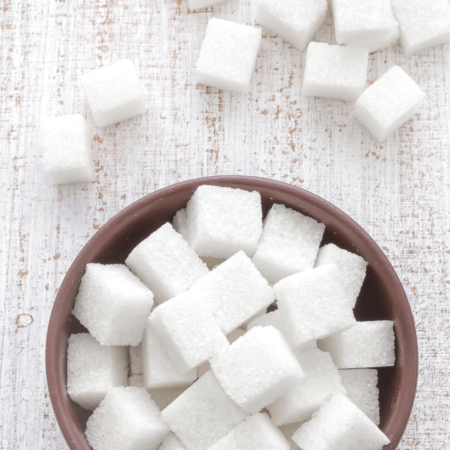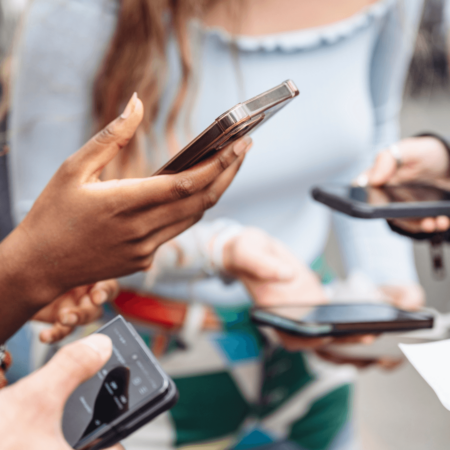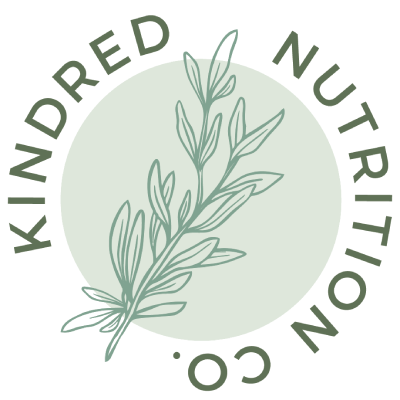Diet Culture’s Bittersweet Relationship With Sugar

In diet and wellness culture, sugar has become the villain of choice, blamed for everything from “obesity” to “addiction”. However, the science behind sugar’s supposed dangers is filled with contradictions, unsupported claims, and misconceptions. This blog post will help you understand the truth behind the sweet-tasting, soluble carbohydrate (sugar).
Science & Misconceptions About Sugar
Sugar and “Addiction”
- Sugar is often labeled as addictive, but research does not support true addiction mechanisms.
- Studies show addiction-like behaviors emerge when sugar is restricted, not when it’s freely available.
- In animal studies, rodents only showed compulsive behavior around sugar when access was intermittent and preceded by restriction.
- The feeling of being out of control with sugar is usually a psychological rebound from restriction, not evidence of neurochemical addiction.
- Being unable to stop eating a cookie does not equate to the compulsive, criminal, or health-destroying behaviors seen with drugs like heroin or cocaine.
- You cannot be addicted to something necessary to sustain life. Have you ever heard of someone’s debilitating addiction to water or fresh air?
The Contradictory Arguments Against Sugar
- Sugar = “empty calories” (not inherently harmful, just not nutritious).
- Sugar is a toxic, metabolically damaging substance, similar to poison.
- These claims contradict each other but are often used together to vilify sugar.
- Simplistic “sugar = bad” messaging ignores the complexity of health and nutrition.
Sugar, Health Outcomes, and Scientific Uncertainty
- Associations between sugar and diseases are correlational, not causal.
- Many studies fail to account for factors like poverty, stress, or food insecurity.
- Sugar is rarely consumed in isolation—context matters.
Sugar and Type 2 Diabetes
- Many studies find no significant link between added sugar and type 2 diabetes.
- A U-shaped risk curve suggests that both ultra-low and ultra-high intakes may increase risk.
- Moderate consumption shows lowest risk.
- Binge/restriction cycles may mediate elevated risk in extreme groups.

Psychological & Behavioral Impacts
Restriction and Binge Cycles
- Restricting sugar increases cravings and binge-like behaviors.
- These are symptoms of disordered eating, not addiction.
Forbidden Fruit Effect
The more sugar is restricted or demonized, the more desirable it becomes. Once the restriction ends, the body may overcompensate, consuming more sugar to make up for what was lost. This isn’t sabotage—it’s protection.
The Power of Perception on Physiology
- Blood sugar spikes can result from expectations, not actual sugar content.
- People who thought they drank a sugary beverage showed a greater glucose response—even when the drink was the same.
- This is especially true for those who eat based on external cues like calorie counting.

Cultural & Political Context
UK Policy and Sugar Panic
- Sugar panic rose alongside austerity and public health messaging failures.
- Framed as a moral issue, not a systemic one.
- “Strivers” avoided sugar; “skivers” consumed it and were blamed.
- This narrative reinforces discrimination and distracts from real issues like poverty and access to healthcare.
Food Industry & Marketing Tactics
- Sugar-free products are marketed as “wellness” items, despite lacking nutritional advantage.
- Soft drink companies reformulate to avoid sugar taxes but still sell original products.
Gender, Class & Labor
- Cutting out sugar often adds mental load, label-reading, and meal prep burden.
- Women, especially mothers, are most impacted by these unpaid tasks.
Class-Based Double Standards
- Middle-class women praised for moderation; lower-income women shamed for same behavior.
- “Sugar-free” options are more expensive and signal privilege.
- No one shames someone for eating a mango—even though it has more sugar than a soda.
Emotional & Social Meaning of Sugar
- Sugar plays a key role in celebration, culture, emotion, and connection.
- Demonizing sugar reduces food to function and erases joy.

Empowerment or Control? Diet Culture Marketing Tactics
Modern anti-sugar programs claim to be “empowering” or “not diets” while still reinforcing food rules and shame. They moralize sugar and turn food into a battleground.
Have I Mentioned We Need Sugar to Live?
Glucose is the brain’s main fuel. Though it makes up just 2% of your body weight, your brain uses 20% of your daily energy—most of it from sugar. This isn’t indulgence; it’s biology.
If you’re struggling with sugar restriction or disordered eating, contact me today to schedule your free discovery call.
